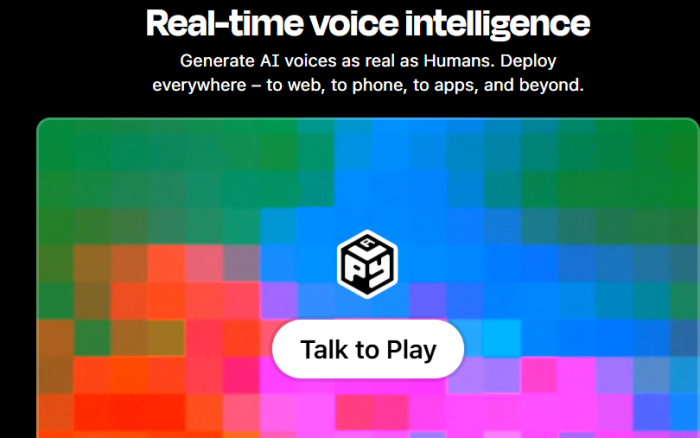Meta has quietly picked up PlayAI, a voice tech startup that’s barely three years old — but already making noise in the world of synthetic speech.

Founded in 2021 by Hammad Syed and Mahmoud Felfel, PlayAI raised around $21 million in early-stage funding and built one thing exceptionally well: ultra-natural, emotionally expressive AI voices.
What Does PlayAI Actually Do?
At its core, PlayAI specializes in:
- Lifelike voice cloning
- Real-time speech synthesis
- Emotionally aware intonation
Use cases in AI avatars, customer support bots, gaming characters, and even smart wearables
Its appeal? Speed, realism, and the ability to make AI sound… less like AI.
Who’s Going Where?
All PlayAI team members will now join Meta, and they’re not just being parked in some corner. They’ll work directly under Johan Schalkwyk, who recently came from Sesame AI and now leads Meta’s voice and conversational AI unit. This puts them in the middle of Meta’s most ambitious work.
Inside Meta’s “Superintelligence” Playbook
This move is part of something bigger.
In the past six months alone:
- Meta acquired ScaleAI for $14.3 billion
- Brought on Alexandr Wang (ScaleAI’s CEO) to lead Superintelligence Labs
- Poached Ruoming Pang from Apple’s AI division
- Hired engineers from OpenAI, Anthropic, Google DeepMind, and others
Mark Zuckerberg is betting big on AI — not just to catch up, but to dominate the next computing wave.
Why Voice Is the Next AI Frontier
While chatbots and vision models hog headlines, voice is the interface everyone will soon rely on.
Think:
- AI friends with human voices (Meta’s AI Characters)
- Spoken assistants for Ray-Ban smart glasses
- Real-time dubbing in Instagram videos
- Voice-enabled creators and avatars in the metaverse
PlayAI’s voice engine could become the backbone of all this.
A Strategic Fit for Meta’s Ecosystem
Meta called PlayAI “a great match” for multiple initiatives:
- Meta AI assistant
- AI Characters
- Wearables
- Multimodal creation tools
- And future VR/AR devices
Voice isn’t a bolt-on—it’s a core interface for the next generation of digital experiences.
What About the Risks?
With great realism comes great responsibility:
- Voice cloning tech could be misused for scams, impersonation, or misinformation
- Ethical boundaries on consent, licensing, and deepfake detection need clear policy
- Regulatory scrutiny may increase as AI-generated audio becomes indistinguishable from human voices
Meta will need to address these challenges if it wants public trust to match its tech muscle.
The Market Response
While the acquisition amount wasn’t disclosed, industry insiders say PlayAI wasn’t a unicorn — but the acquihire value was in the talent and IP. VCs like Kindred Ventures and 500 Global saw early promise, and Meta may have just secured a bargain in the voice race.
The Bigger Picture
Meta’s AI efforts are now spread across:
- FAIR (Fundamental AI Research)
- Superintelligence Labs
- Reality Labs
- Meta GenAI (product applications)
By combining foundational research with product-driven integrations like PlayAI, the company is creating a full-stack AI empire.
Final Take
Meta’s PlayAI acquisition isn’t just about sound — it’s about owning the human layer of AI. As platforms race to create agents you can see, touch, and now hear, Meta wants its voice to be the one billions recognize. With a deep bench of talent and a laser focus on immersive AI, the company isn’t just chasing OpenAI and Google anymore.
It’s talking to the future — and the future might talk back.
Post Comment
Be the first to post comment!





